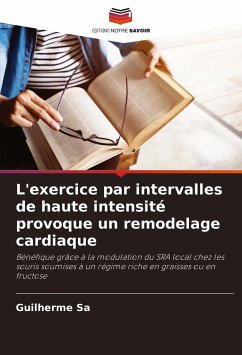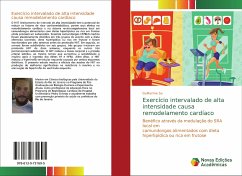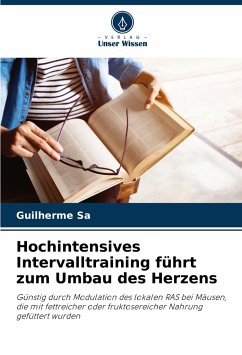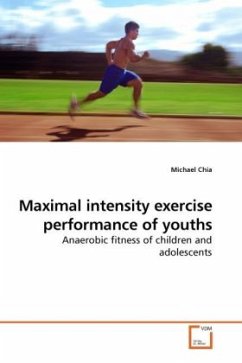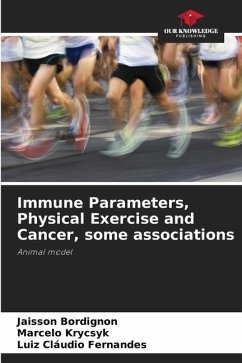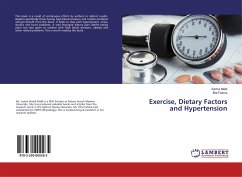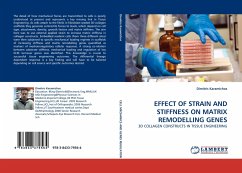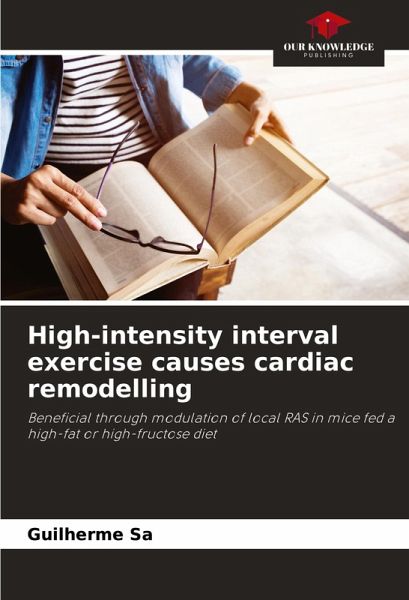
High-intensity interval exercise causes cardiac remodelling
Beneficial through modulation of local RAS in mice fed a high-fat or high-fructose diet
Versandkostenfrei!
Versandfertig in 6-10 Tagen
27,99 €
inkl. MwSt.

PAYBACK Punkte
14 °P sammeln!
HIIT (high-intensity interval training) has the potential to reduce cardiometabolic risk factors, but its effects on cardiac remodelling and the local renin-angiotensin system in mice fed a high-fat or high-fructose diet have yet to be clarified. Sixty male C57BL/6 mice were randomly divided into three groups according to the diet offered (control, high-fat or high-fructose) and monitored for eight weeks before the HIIT protocol. The animals were then subdivided into six groups, three groups began a twelve-week HIIT protocol, while the other three remained sedentary. HIIT reduced body mass and...
HIIT (high-intensity interval training) has the potential to reduce cardiometabolic risk factors, but its effects on cardiac remodelling and the local renin-angiotensin system in mice fed a high-fat or high-fructose diet have yet to be clarified. Sixty male C57BL/6 mice were randomly divided into three groups according to the diet offered (control, high-fat or high-fructose) and monitored for eight weeks before the HIIT protocol. The animals were then subdivided into six groups, three groups began a twelve-week HIIT protocol, while the other three remained sedentary. HIIT reduced body mass and systolic blood pressure, while increasing insulin sensitivity after ingesting the HF and HFRU diets. In addition, HIIT reduced the left ventricular hypertrophy caused by both diets. This study shows the effectiveness of HIIT sessions in producing significant improvements in insulin resistance and attenuating left ventricular hypertrophy.





